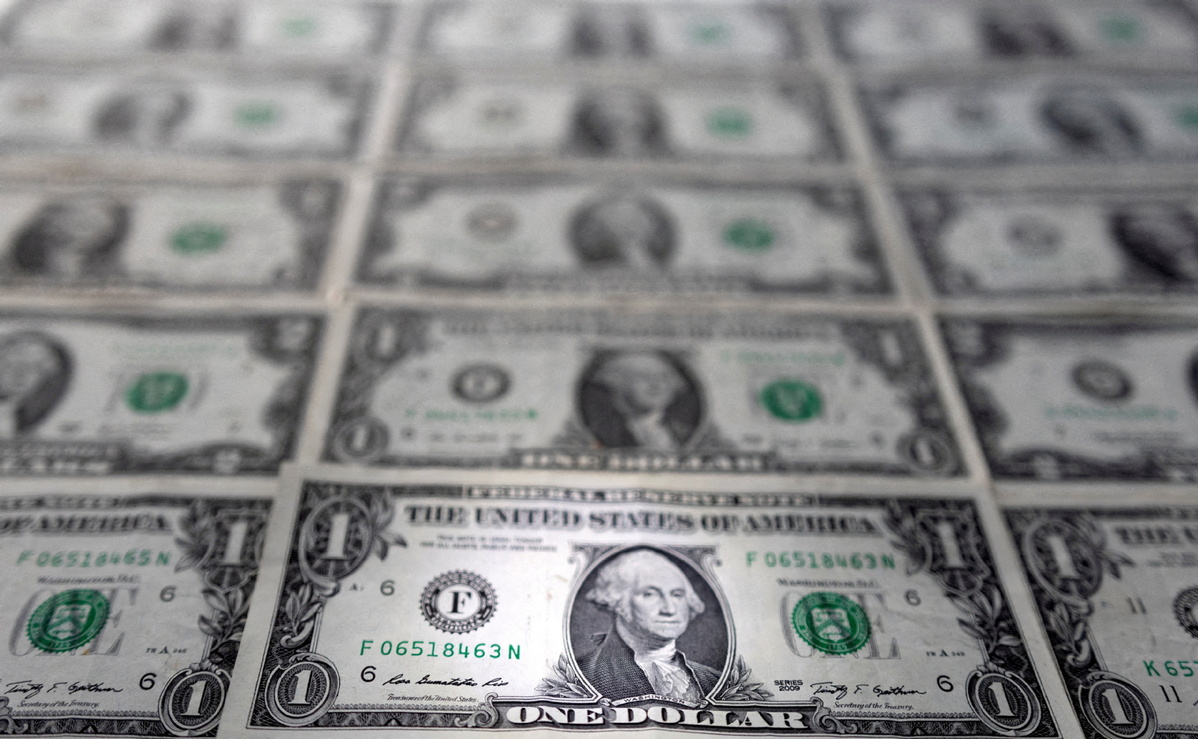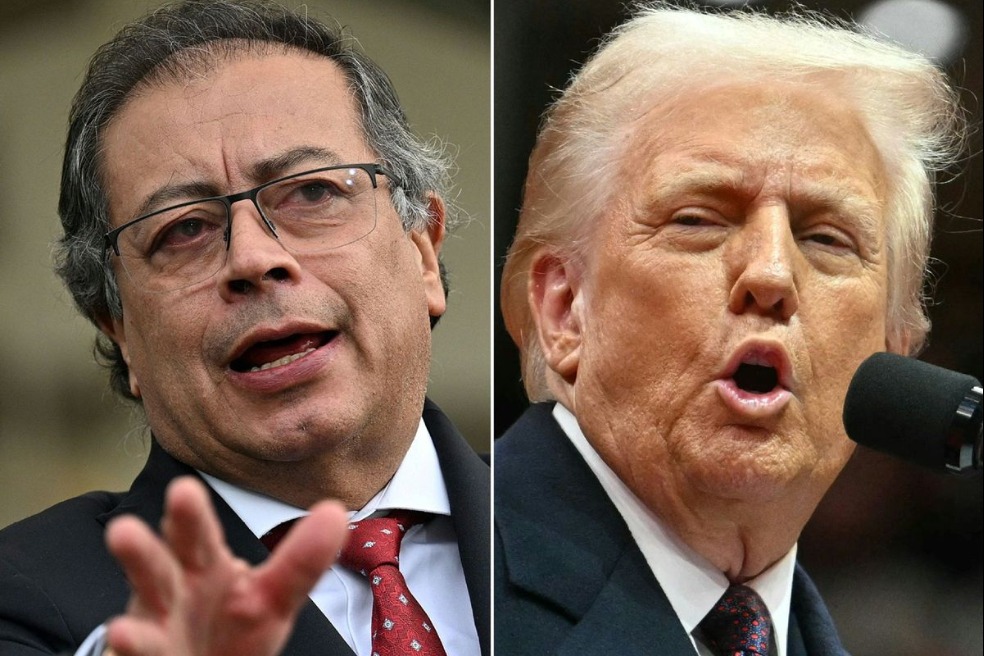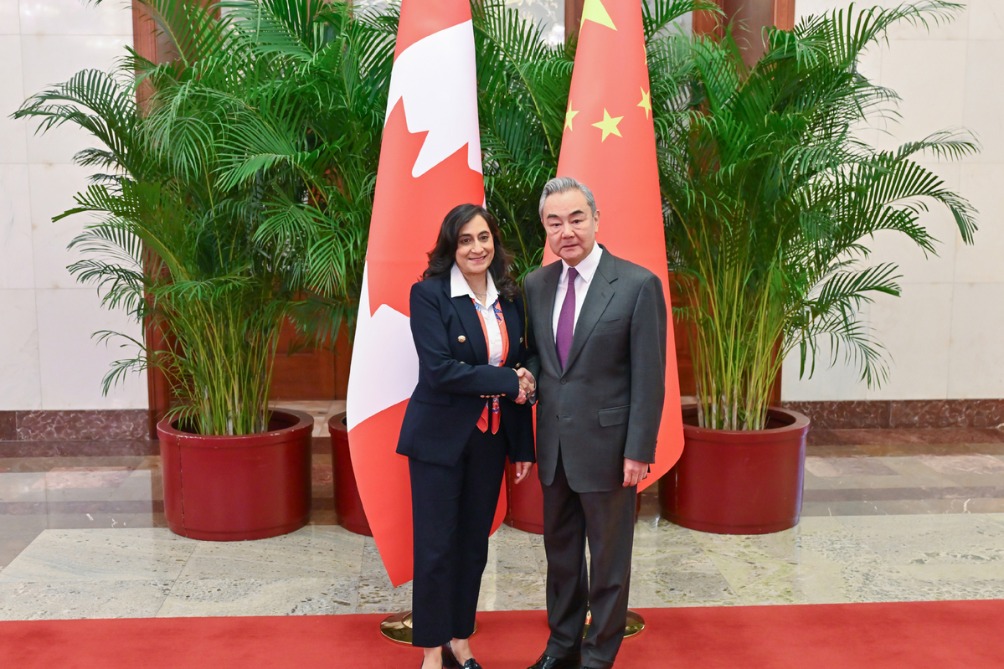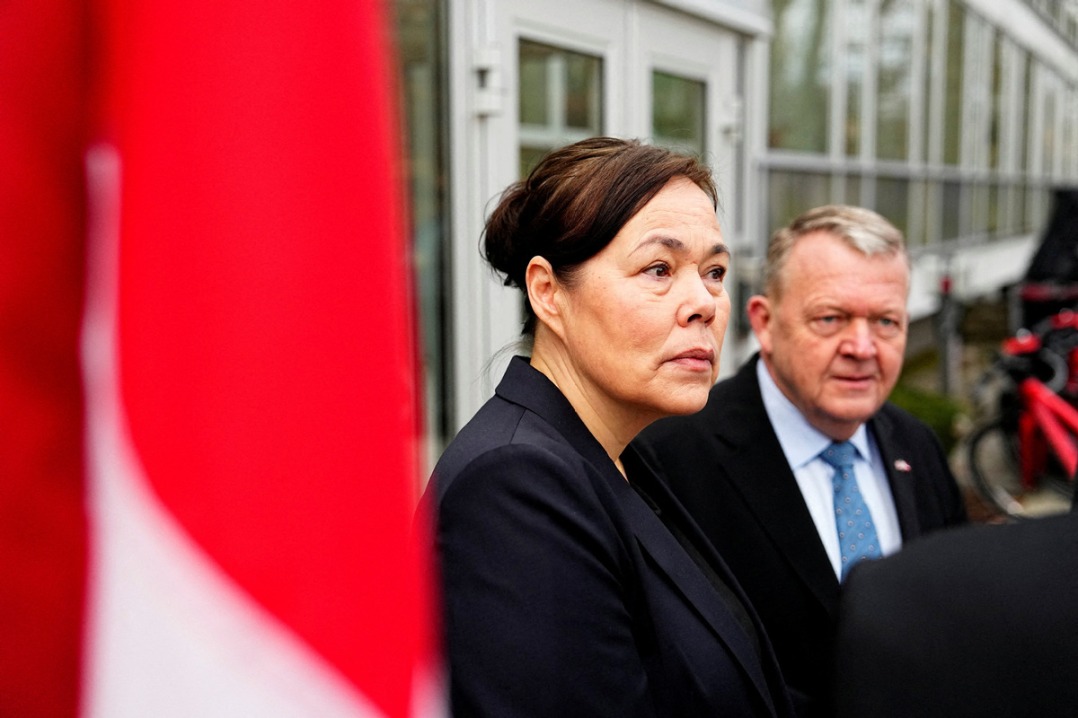Benefits seen in greenback's declining heft
Reserve currencies diversification can strengthen financial system, forum told


Reserve currencies diversification can strengthen financial system, forum told
Although the US dollar may remain the dominant currency for the foreseeable future, its eventual declining clout could strengthen the international financial system, a forum has heard.
The panelists in a webinar reached that consensus to some extent at the event hosted on Tuesday by the Hutchins Center on Fiscal & Monetary Policy and the Brookings Institution. The forum was titled "The Future of the US Dollar: Are Its Days as the World's Dominant Currency Numbered?"
Eswar Prasad, a senior fellow at Brookings' Global Economic and Development Program, said the greenback would remain dominant for the foreseeable future despite technological changes and the rise of other global currencies.
In an International Monetary Fund blog published last week, economists said that the dollar's dominance is eroding in the face of nontraditional reserve currencies.
"The dollar's share of global foreign-exchange reserves fell below 59 percent in the final quarter of last year, extending a two-decade decline, according to the IMF's Currency Composition of Official Foreign Exchange Reserves data," IMF economists Serkan Arslanalp, Barry Eichengreen and Chima Simpson-Bell wrote in the blog.
Prasad said the US still accounts for around 25 percent of global GDP after declining over the past few years, and the US has the world's largest fixed-income markets. For those reasons, "the US dollar is still functioning far above its weight in global finance".
Less pressing role
However, he said that the dollar's role as a medium of exchange might be much less pressing.
Zach Pandl, the managing director of global investment research at Goldman Sachs, said during the webinar that China's development goals, the reaction to the US financial sanctions on Russia through the dollar-based payments network and new technology are the three main forces reducing the dollar's international share.
Pandl said that while China is the world's largest trading nation, most of the international trade occurs in US dollars, so China has been working to reduce economic vulnerability by various measures such as developing its own cross-border payment system, getting added to the Special Drawing Rights basket (an international reserve currency basket created by the IMF in 1969 to supplement its member countries' official reserves); and developing the digital renminbi, with the internationalization of its currency leading to the displacement of the dollar in some spheres.
Those moves have also been "a reaction to sanctions", with Russia having taken steps to diversify away from dollars after the imposition of sanctions on the country following its annexation of Crimea, Pandl said.
The European Commission has started more diligently pursuing the goal of internationalizing the euro, considering the prevailing financial risks.
The third force is on the technological side. Although blockchain technology, including cryptocurrency, is still in a nascent stage, it is hard to forecast how it could evolve, Pandl said.
"And maybe with less reliance on a single-country banking system …(there could be) less vulnerability to foreign policy goals of any one particular country… applied through currency markets," said Pandl.
The IMF blog also said that many countries are increasing the diversification of their foreign exchange reserves.
"In an example of the broader shift in the composition of foreign exchange reserves, the Bank of Israel recently unveiled a new strategy for its more than $200 billion of reserves," the blog said.
For the US economy, there are some positives if the dollar loses share, said Kathryn Dominguez, a professor of economics and public policy at the University of Michigan. She said a strong dollar as a reserve currency is in the national interest, but "exporters are less competitive when the dollar is stronger".
yifanxu@chinadailyusa.com

































